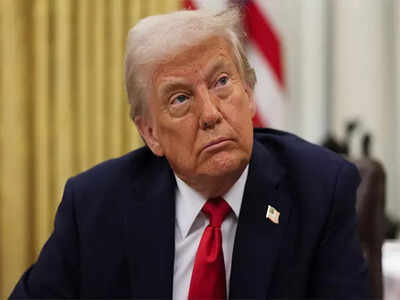
Trump's new student loan policy
President Donald Trump is steering a major transformation of the federal Public Service Loan Forgiveness (PSLF) programme, sparking concern that a system once rooted in civic reward may now be reshaped by political ideology.
The proposed changes could disqualify thousands of government and nonprofit workers from loan relief based not on what they do, but where, and for whom, they work.A new policy being developed by the US Department of Education under Trump’s directive would redefine eligibility for PSLF by targeting organisations deemed to be engaged in “illegal activities.” Yet embedded in this definition are politically charged references to immigration, gender-affirming care, and foreign affiliations, broad areas where legality is often disputed, not settled.
Understanding PSLF: A longstanding public commitment
The PSLF programme, created in 2007, was designed to encourage graduates to enter lower-paying but socially vital public sector jobs. It promised that after 10 years of service and 120 qualifying payments, borrowers would have their federal student loan balances wiped clean. For many, the programme was a financial lifeline and a moral pact: serve society, and be relieved of long-term debt.Government employees, healthcare workers, nonprofit staffers, and public defenders have all relied on this structure.
More than one million borrowers have already benefited from or are working toward forgiveness under it.
What the new proposal changes
The Trump administration’s revisions would allow the Department of Education to disqualify employers involved in certain “illegal activities” from being PSLF-eligible. The draft policy includes specific triggers: Aiding or abetting immigration violations, engaging in gender-affirming care for minors (defined as those under 19), or associating with organisations designated as terrorist-affiliated.Importantly, the proposal does not rely strictly on court convictions or legal rulings. It gives the education secretary discretionary power to determine if an organisation’s activities fall within the disqualifying scope, even without legal settlements or formal charges.This broad administrative authority has raised alarm among education advocates and legal analysts, who argue that ideological interpretation could replace legal objectivity in defining who qualifies for loan relief.
Possible fallout for borrowers and institutions
The implications are sweeping. A nonprofit hospital with a single clinic offering gender-affirming care could lose PSLF status for all employees. Cities with sanctuary policies or public schools incorporating diversity and inclusion programmes may be flagged. Workers who have invested years toward loan forgiveness may suddenly find themselves ineligible.Organisations would also be required to annually certify that they are not engaging in prohibited activity.
A paperwork oversight or internal legal dispute could put every employee’s PSLF status at risk.Critics caution that the proposal could be used to target institutions not for legal misconduct, but for political nonconformity. As a result, entire sectors of the public workforce, especially in healthcare, education, and immigration services, could be destabilised.
Workforce strain and legal ambiguity
Several members of the rulemaking panel expressed strong concerns about the vagueness and potential overreach of the proposed language.
Yet only one negotiator formally opposed the rule, while others supported minor changes in an attempt to temper its impact.Some analysts predict the policy could exacerbate staffing shortages in critical public roles. If borrowers can no longer rely on PSLF, they may abandon essential but low-paying positions in favour of private-sector jobs with better compensation and fewer political risks.Moreover, the lack of clear standards for what constitutes illegal activity creates legal ambiguity.
Without a transparent, objective framework, the department's decisions could be challenged in court on grounds of arbitrary enforcement or violation of constitutional protections such as due process and freedom of association.
Timeline and public response
The Department of Education is currently preparing the final rule for public comment. If adopted, the changes would take effect in July 2026. Until then, the uncertainty looms over borrowers employed by organisations that could be deemed controversial under the new criteria.The agency has stated that its goal is to prevent unlawful use of taxpayer funds and ensure that federal benefits do not support illegal conduct. Nonetheless, opponents argue that the proposal risks punishing lawful employees based on ideological disagreement, not criminal behaviour.
A critical moment for public service
The PSLF programme has, for over a decade, symbolised a bipartisan commitment to public service. By intertwining eligibility with politically sensitive definitions of legality, the Trump administration’s proposed rule threatens to erode that neutrality.This is no mere bureaucratic update—it represents a fundamental shift in how the federal government values and rewards civic labour. If allowed to proceed unchecked, the policy may not just deny borrowers loan forgiveness; it could redefine public service itself.
As the public comment period approaches, borrowers, institutions, and civil society groups face a pivotal opportunity to shape the future of a programme that has long been a cornerstone of America’s social contract with its public servants. Whether that contract endures—or fractures—may depend on what happens next.

 3 hours ago
56
3 hours ago
56




























 English (US)
English (US)